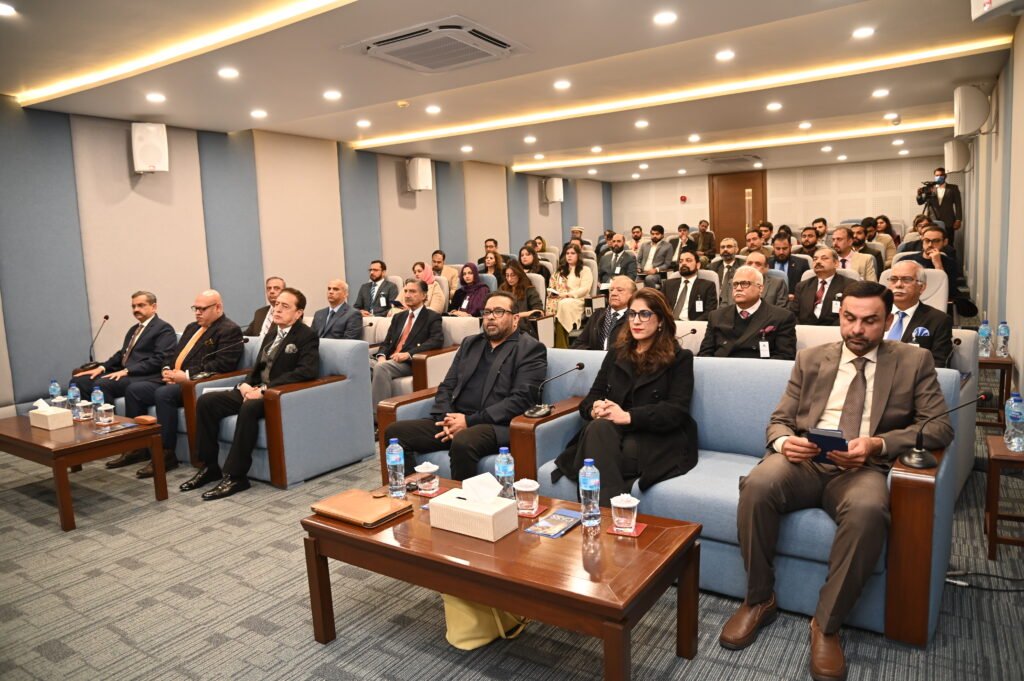
Seminar
Mastering Narratives: Navigating Disinformation and Reshaping Perceptions for Pakistan‘s Future
About The Event
In today’s interconnected world, digital networks are forging ties among nations in unprecedented ways, ushering in an era where communication transcends traditional boundaries. The reach of media through these digital networks extends far beyond geographical confines, creating ripple effects across territories.
Within this transformative landscape, narratives, or stories, have emerged as powerful architects shaping how a nation is perceived. The potency of their influence becomes even more pronounced as narratives traverse the digital pathways of social media, online platforms as well as traditional news outlets, resonating with individuals across the globe.
Narratives, whether intentional or organic, contribute to the shaping of a collective global consciousness, influencing how nations are perceived and how their stories are told in the complex tapestry of international relations.
However, this interconnected world also becomes a battlefield, where histories, perceptions, and ideologies clash, often fracturing societies and silencing voices. Amidst this complicated web, the phenomenon of 5th Generation Warfare (5GW) unfolds, introducing a new generation of conflict with far-reaching implications across national security, foreign policy, and domestic affairs.
At the forefront of 5GW lies the strategic deployment of disinformation. This subtle yet potent weapon operates within the invisible realms of the digital landscape, leveraging the vast possibilities offered by evolving technologies. Disinformation campaigns, often sophisticated and targeted, exploit not only the vulnerabilities of information dissemination but also deepen existing social divisions.
Pakistan finds itself at the epicentre in this relentless 5GW landscape characterised by disinformation, weaponisation of narratives and perception building. The EU DisinfoLab’s revelations about India’s 15-year operation to discredit Pakistan through deceptive media practices serve as a clarion call, demanding proactive measures to counter further assaults as the 5GW gains momentum.

Key Takeaways
- Deepening Societal and Political Polarisation
Disinformation acts as a catalyst for deepening societal and political polarisation by manipulating emotions, exploiting cognitive biases, and amplifying divisive narratives. Simultaneously, it poses a significant global threat by eroding trust in democratic institutions, particularly as elections approach in over 60 countries.
- Balancing between Freedom vs Rights
States need to find a balance to safeguard both security imperatives and individual liberties. While countering misinformation is vital for stability, an overly strict approach may encroach on the fundamental right of expression.
- Astroturfing of Narratives
Astroturfing, the exploitation of online algorithms to amplify content, plays a vital role in proselytising disinformation. It floods social media feeds and search engine results with false content, pushing fringe viewpoints into the mainstream and creating a manufactured consensus that distorts public perception.
- Critical Role of Youth Education
Educating and training the youth is vital to empower them in identifying disinformation, fostering critical thinking, and mitigating susceptibility to misleading narratives.
- Hybrid Warfare Against Pakistan
Adversaries employ 5GW tools like disinformation and deception to manipulate public opinion, aggravating fault lines in a hybrid warfare strategy aimed at destabilising Pakistan. This underscores the imperative for counter propaganda efforts and the development of comprehensive counter-narratives.
- Cultivating Informed Perspectives on Strategic Cultures
There is a lack of clarity in the general masses regarding the strategic culture of Pakistan, resulting in the internalisation of foreign narratives. Informed debates and clear perspectives in this regard are essential to help people better grasp the complexities of realpolitik.
- Global Information Perspectives and Digital Personas
The emergence of digital personas and the metaverse are changing the global information landscape. It also challenges the traditional notions of reality, allowing individuals to project multiple versions of themselves in cyberspace.
Policy Considerations
- Engage Strategically
Pakistani leadership and media personnel should exercise caution in responding to provocations, and refrain from unnecessarily amplifying disinformation messages. It is crucial to approach such engagements mindfully to prevent unintended spread and agitation, particularly in online interventions.
- Avoid Dichotomous Narratives
Government officials and media personnel should avoid adopting a binary ―Us vs Them narrative when countering disinformation. It is important to avoid over-targeting specific groups to prevent counterproductive outcomes.
- Develop Information Governance Measures
It is crucial to develop robust mechanisms in the public and private sectors of Pakistan for detecting and eliminating harmful online content. This includes the implementation of strategies to counteract the psychological impact of disinformation and bridge cognitive gaps.
- Leverage Youth Potential
Pakistan‘s youthful population can be a driving force for economic development and growth. Leveraging the potential of this working-age demographic is the need of the hour.
- Ensure Data Accuracy
Both governmental and non-governmental agencies should work on addressing discrepancies in reporting internet usage figures to accurately gauge Pakistan‘s digital presence for a more reliable representation at the global level.
- Information Literacy
The government needs to prioritise information literacy initiatives in Pakistan to equip individuals with the skills necessary to critically evaluate and navigate the vast amount of information available in the digital space.
- Ensure Culturally Sensitive Engagements
Government officials and media personnel must prioritise cultural sensitivity in strategic engagements. They need to ensure that all interventions respect and align with the diverse values of Pakistani society.

Post Event Report
A comprehensive report capturing expert analyses, strategic insights, key recommendations, media coverage, and event highlights.
Guest Speakers

Mr Amir Jahangir
CEO, Mishal Private Limited
Dr Zeeshan Zaighum
Assistant Professor, BNU

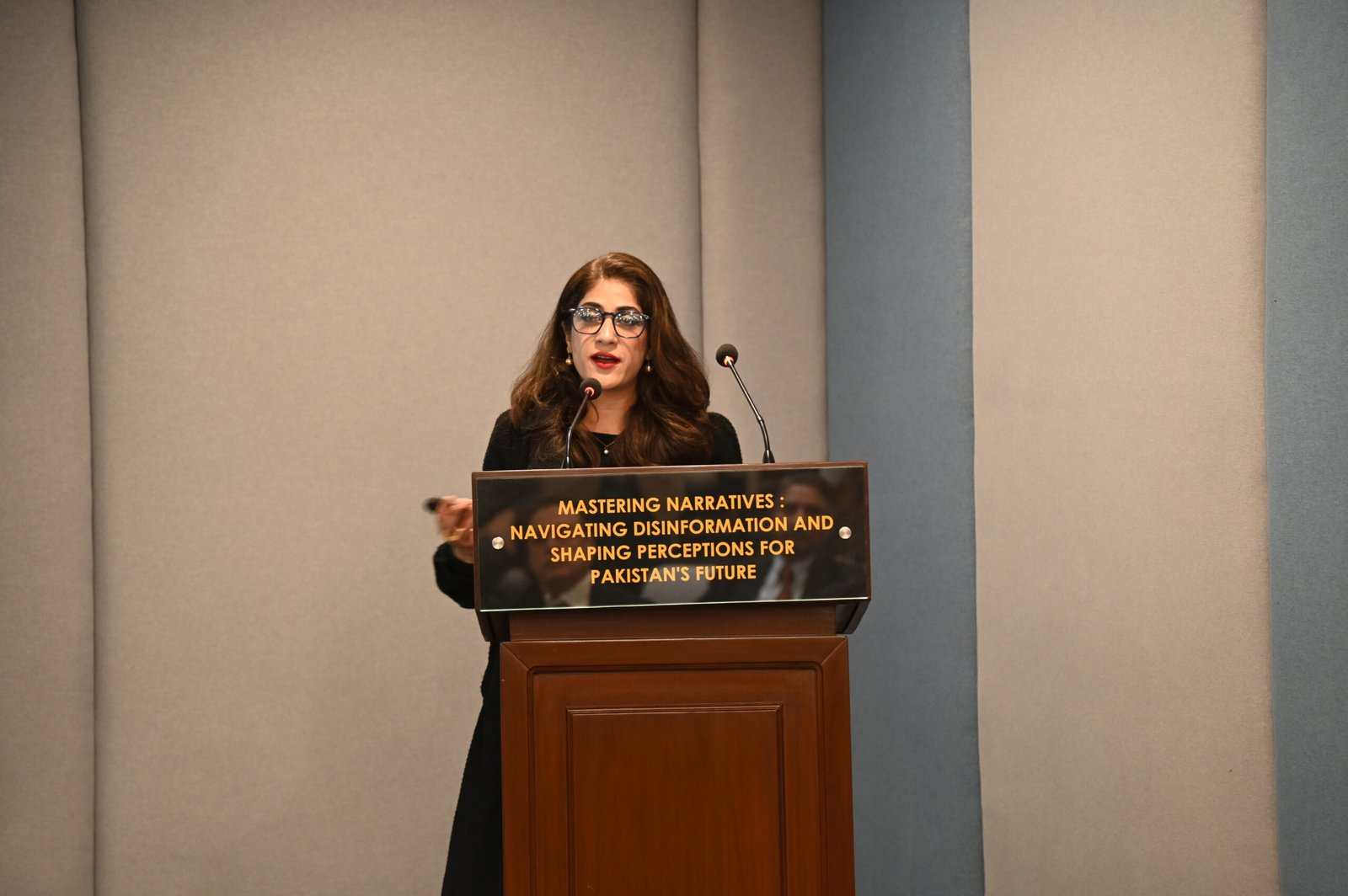
Ms Amber Shamsi
Director, Centre for Excellence in Journalism (CEJ)

Event Chair
Air Marshal Asim Suleiman (Retd)
President, CASS Lahore

Event Coordinator
Nidaa Shahid
Senior Researcher, CASS Lahore
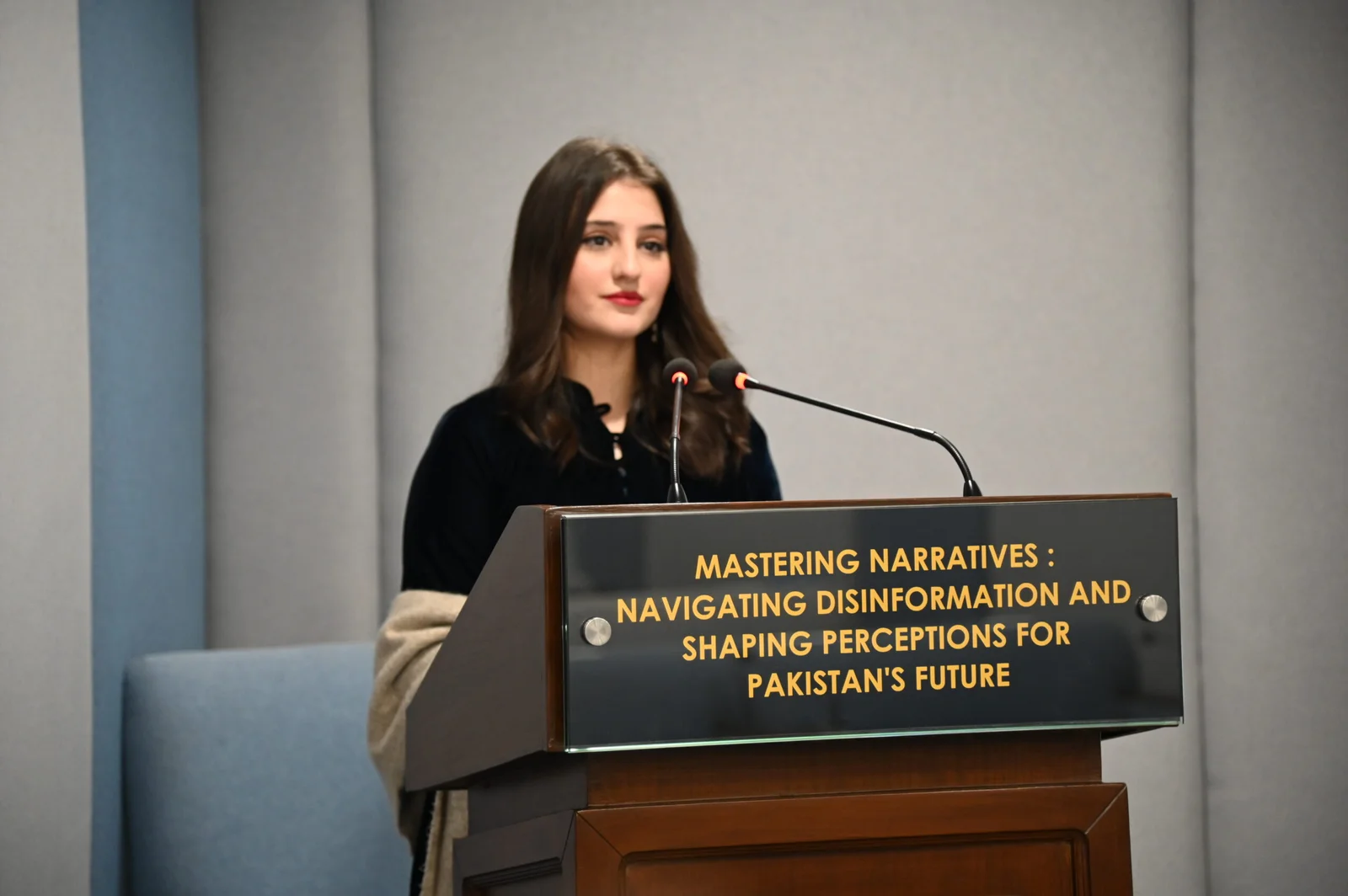
Master of The Ceremony
Faiza Abid
Researcher, CASS Lahore
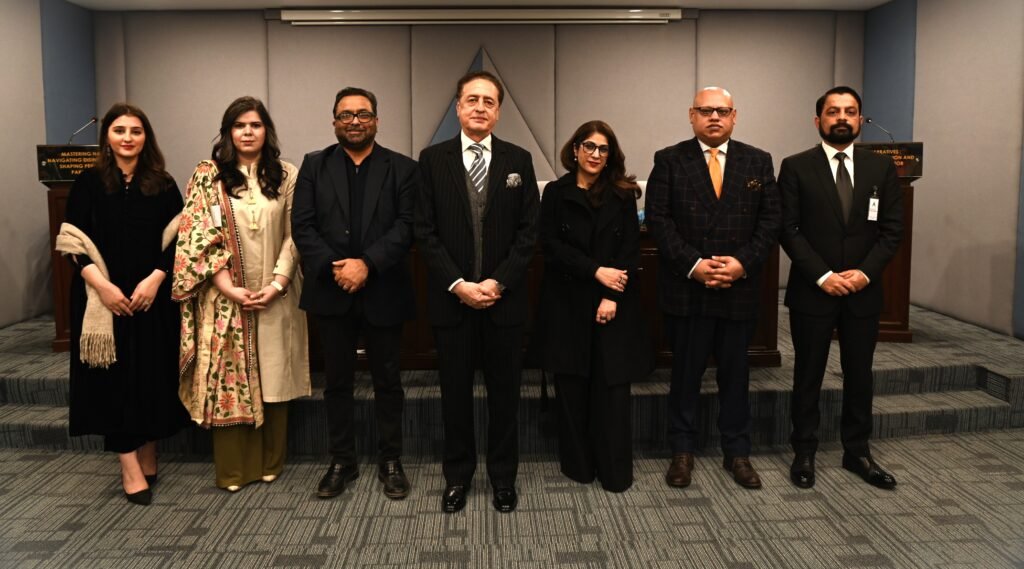
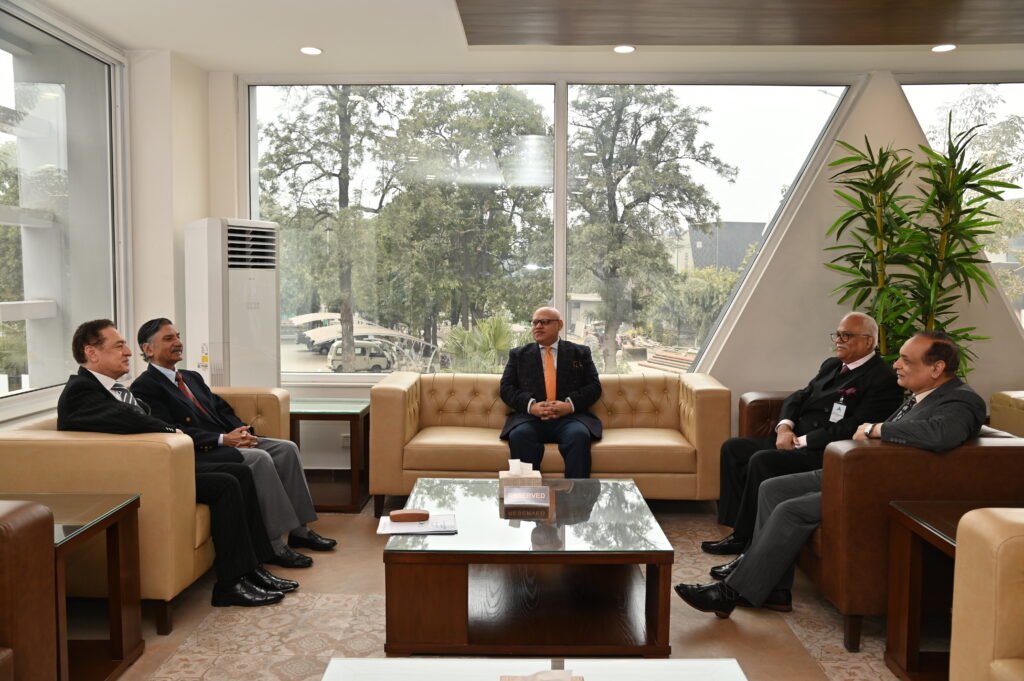






CASS LAhore

The Centre for Aerospace & Security Studies (CASS) was established in July 2021 to inform policymakers and the public about issues related to aerospace and security from an independent, non-partisan and future-centric analytical lens.
CASS Newsletter

@2025 – All Right Reserved with CASS Lahore.
- Home
- About Us
- Research Domains
- Publications
- Events
- Gallery
- Contact Us
@2021 - All Right Reserved. Designed and Developed by PenciDesign



